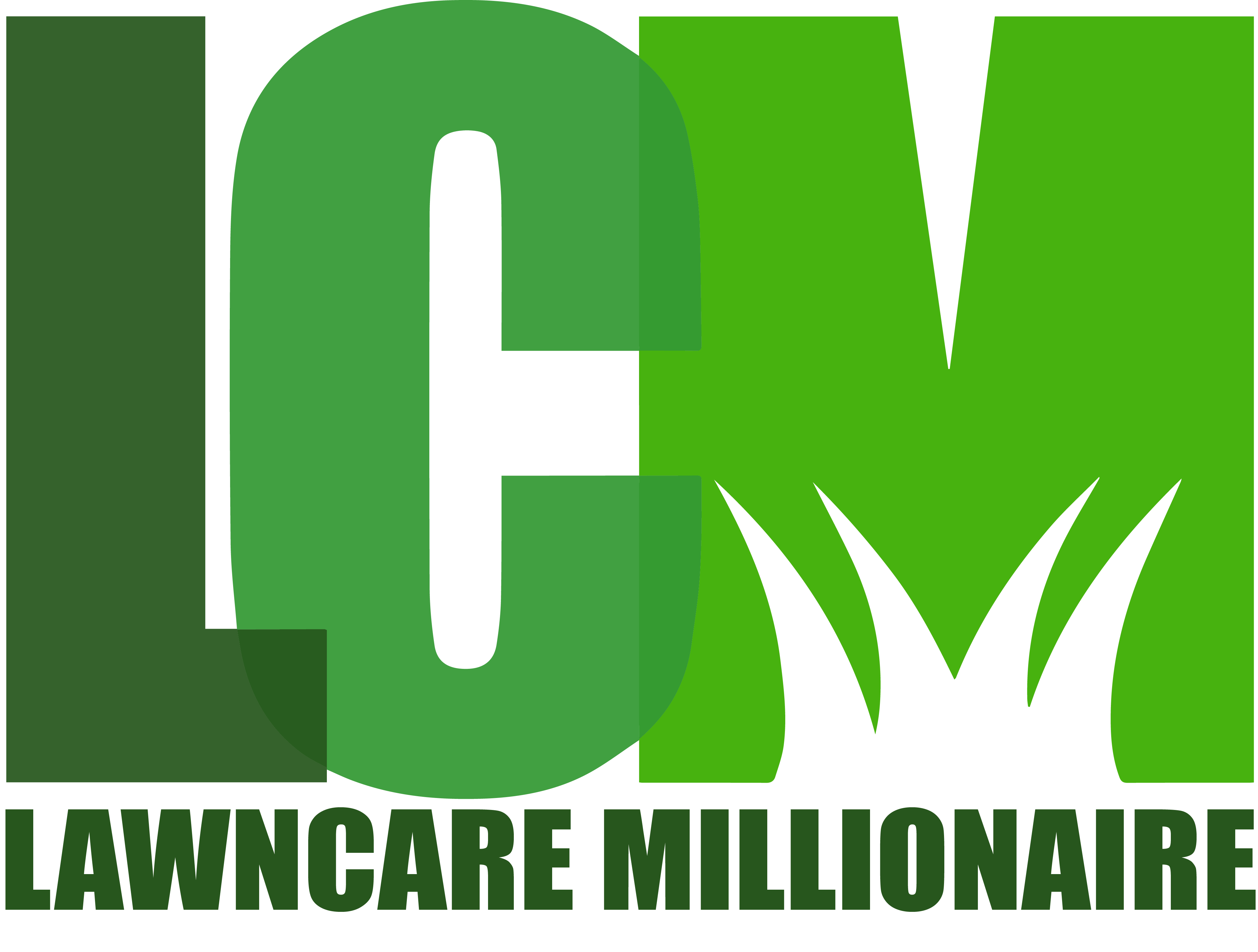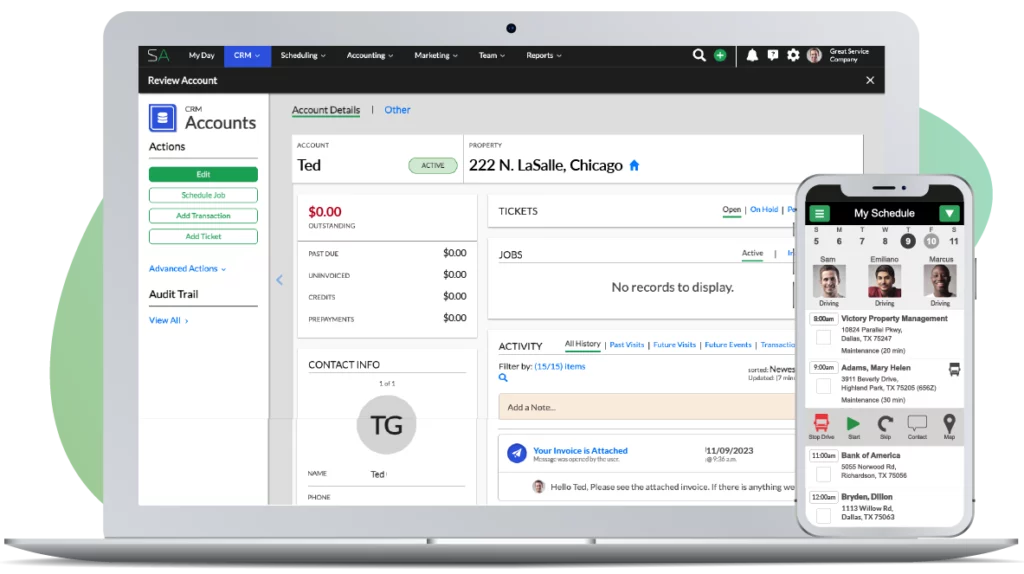Quickly learn if you must pay tax on landscaping business income… covers income tax, sales tax and payroll tax.
0:48 – You Must Pay Tax on Your Landscape / Lawn Care Business… Period.
3:21 – Which tax you don’t consider when pricing work.4:20 – Sales Tax Explained
4:20 – Sales Tax Explained
6:57 – Details about Licensing your Lawn Care Company
This question has to do with taxes, insurance, and licensing. The question is … Well basically the question is that an individual asked this business owner and this person owns a small business if he had the correct licensing and if he paid taxes on his gross recepits. This individual says, ” I never thought I had to pay tax for this work.” I’m going to explain several things about this. He goes on to say if he pays tax, it will really damage his business. He also is asking about if he has licensing and insurance. I’m going to try and answer this question with some details.
Let’s start with the tax side. This should be true for the U.S., Canada, U.K., New Zealand, Australia, all over, you have to pay tax, period. The way to think about tax … And it doesn’t matter if you’re a small business, you have to pay tax. Let’s start with income tax. There’s sales tax, there’s income tax, there’s self employment tax.
Let’s start with the first side of this. This is the taxes that you pay based on your profits. Gross profit, gross receipts, that is the total amount you made for the year. Take out all your expenses, the money left over as your profit. On that profit … And I’m keeping this intentionally simple. You’re going to have to pay self employment tax. Self employment tax is roughly 15.3%; that’s not the exact number but that is the equivalent of Social Security Tax. Because you’re self employed, the business owner, you’ll pay the entire tax bill. Whereas when you hire employees … Let’s say you hire an employee, you pay half of their tax. So half of that 15 to 16% in tax … Let’s just call it somewhere between 8 to 10% that you pay half of. You pay 7 to 8% tax called payroll tax which is equal to social security tax and then they pay the other half. So, if you pay $100 a year, they pay 7 to $8 a year in payroll taxes and you pay 7 to $8 of their payroll tax each year. Whereas, when you’re self employed, and you’re paying yourself, you have to pay both sides. Which is that 15.3; then again 15.3 is the not the exact number. You are first and foremost reliable for that and you pretty much cannot get out of that tax. You’re going to pay that on the money left over after your expenses, period.
Then, after that, you’re going to pay federal income tax and that’s going to be some percentage in the percentages of your profits. That percentage is determined based on how much money you make. You fall into tax brackets. If you make under 50,000 it’s a certain percent. If you make 50 to let’s just say 80, that’s just not accurate, you pay a percentage if you pay 80 to 100 and something, you pay a percentage. That percentage is … Goes up as you make more money.
If you’re not making very much money then there’s a high probability that you will either not pay any federal tax or the federal tax that you paid in, you’ll get it back at the end of the year. Even if you have a small company, you may pay no federal tax, but you will pay that self employment tax.
When you’re pricing your work, you do not take into account federal income tax or social security tax. Now, by the nature of paying employees, you do take into account your social security tax that you’re paying for them. The pay roll tax, it’s called labor burden. It’s part of what goes into labor burden and you could Google that. But, you do technically take into account that, let’s just call 7 to 8% that you’re paying because that’s the cost of having them as an employee. But, you don’t take into account at the end of the year when you’re getting your profits out of the business, you don’t take into account in advance your federal tax and your social security tax. You only take that into account on the payroll that you’re paying within your company to service your clients to provide that … Basically to service clients, to take care of the work. That’s not a consideration.
Now, we move into sales tax. Sales tax is not a consideration when your pricing the work either. So, if you price the work and the job is $1000 a month then you add to the $1000 a month sales tax … It’s a line item on the invoice. So, if I were quoting the price to a client, I’d tell them it’s $1000 a month and that I’m going to invoice them for $1000 plus the sales tax. So, if the sales tax is 8%, then their bill would be $1080. When I get paid, I accept the $80 aside and I accumulate it and eventually pay the sales tax off. There is no penalty here on sales tax to you. You’re not taking the sales tax out of the money you’re billing them. You’re adding sales tax to the money you’re billing them. They pay the sales tax and not you. They pay you, you hold it and pay the government.
The sales tax office will go after you in a major way if you do not pay your sales tax. Just because you don’t know that you’re supposed to pay sales tax, does not give you an out. You will still owe the sales tax and you will still owe the penalties. And if you close down your business, they will still get you. You don’t get out of it. When it comes to federal tax, social security, sales tax, you want your ducks in a row because these are business ending mistakes and they’re definitely a lot of mistakes that will give you a lot of stress and keep you up at night. There’s no reason not to do it right, there’s no … You can’t get out of it and you charge the sales tax back to your client when you’re pricing your work and you’re hiring employees, paying their payroll taxes, paying them each month, those are expenses that are built into your pricing. You got to think about those things.
Also, when you’re pricing your work if you’re a small company and let’s say your competitors could sell work at $100. And you think, “You know what, I could do this work as just me. I could do it for 80. The flaw in that thinking is that eventually you’ll have employees, you’ll have trucks and you’ll have expenses. So you should go ahead and price your work correctly now so that as you hire employees, as you do more marketing, as you have more expenses, you’re already pricing the work to cover those expenses. Because what will happen if you don’t take that into account now and you sell that work, you won’t be able to grow because the work you already sold won’t have enough room in it to cover the expenses, to cover the growth. So you want to be very careful there so you don’t make the classic mistake of underpricing work in the early years of the business. The problem is you’re not considering the future expense, expenses that come with growth. Make sure you price so you’re covering growth as you become a more mature business. When I say mature, it’s not even that big of a business.
I would then add to this, licensing. I can’t speak directly to licensing but a rule of thumb, it’s different in every state. Rule of thumb is, in most states, lawn care it does not require licensing … Excuse me, lawn moving. Lawn care such as weed and fertilization does. Pest control, absolutely. Some cases tree care does. So depending on what you’re doing in the state that you’re in you will have different licensing requirements. And, it is different state by state, service by service. You can Google it and you can Google your state and your service license, you could figure this stuff out. I recommend doing that. If you … Again you could get into a quite a bit of trouble, putting down chemicals and not having a license.
The other way to figure this out is go to companies like … If you’re doing fertilization you could go to Lesco. You could go to some of these other companies that sell chemicals and just ask them, what do I need to do to get licensed, where do I do it. They’ll tell you. They know.
Then when it comes to insurance, in most states, worker’s compensation is required. It’s not required in every state but it’s required in majority of the states. Even if it’s not required in your state, most commercial contracts cannot be won without proof of worker’s comp. Worker’s comp is an expense; goes into what’s called labor burden, it’s expense. For every employee you hire, worker’s comp goes up. It’s an expense like payroll taxes, when you hire an employee and you have to pay their matching payroll taxes that was at 7-8% alluded to.
When you hire an employee, a cost comes with them and that’s worker’s compensation because your worker’s comp goes up for every additional person you have on your team. That gets built into your expenses which are your cost which will lower your profits if you don’t price your work correctly and compensate for that expense. Expect to have a worker’s comp expense. When you’re just getting started and you’re really small … In most states there’s a number where when you do over this amount of revenue … Based on your email or when you get … Let me say it this way, if you’re not doing a lot of revenue … And this too, you could Google on the web … If you’re not doing a lot of revenue you may not have to do worker’s comp yet but you need to check that one out.
When it comes to general liability, you typically don’t have to have it by law. Again, state by state it’s different. But you generally need it to win the business of commercial properties. My best recommendation is to Google this stuff, to go to the vendors that sell chemicals, ask them. Go to people in the industry, ask them just like you asked me. But by state, you’re going to have to find someone in your state that could answer your question. Even if you ask somebody and they tell you wrong, you’re still liable. For that reason, I recommend doing a little Google research yourself. Maybe asking an EPA but dig in and make sure you get the answer. I gave you a rule of thumb so you know for a fact that you have to charge sales tax.
I didn’t mention this by the way, from state to state if you have to charge sales tax varies. For example some states you may not have to charge sales tax on services just on product. In others, you do on product but not on services. I’m in Texas and in Texas we have to charge sales tax on pretty much all service and all product. By state, that will be different. You’ll need to figure that out for your state. You can Google sales tax office and then whatever the service is that you provide. You can ask your CPA, but again, even if they tell you wrong, you’re still liable. So double check it. Good luck.



